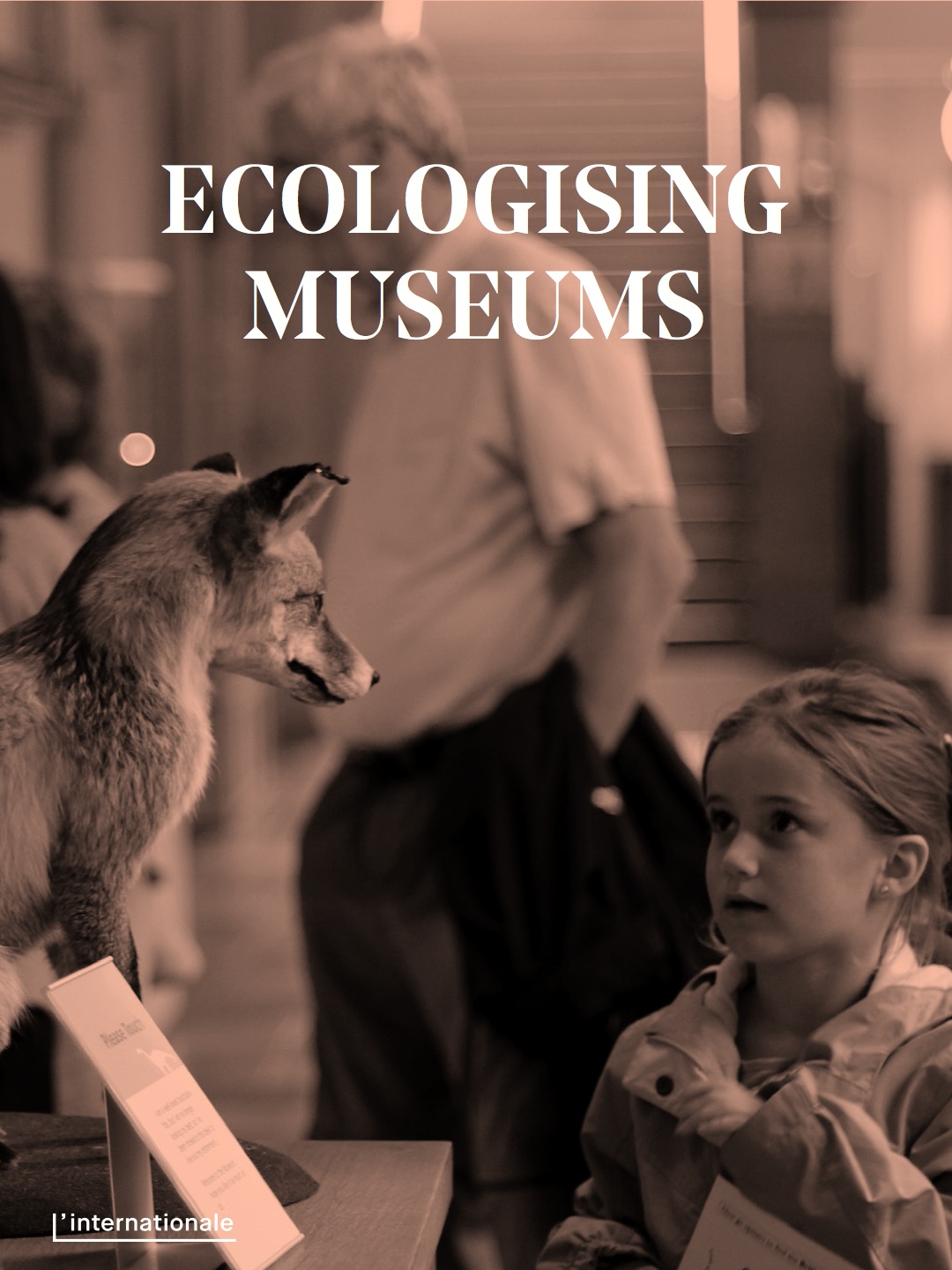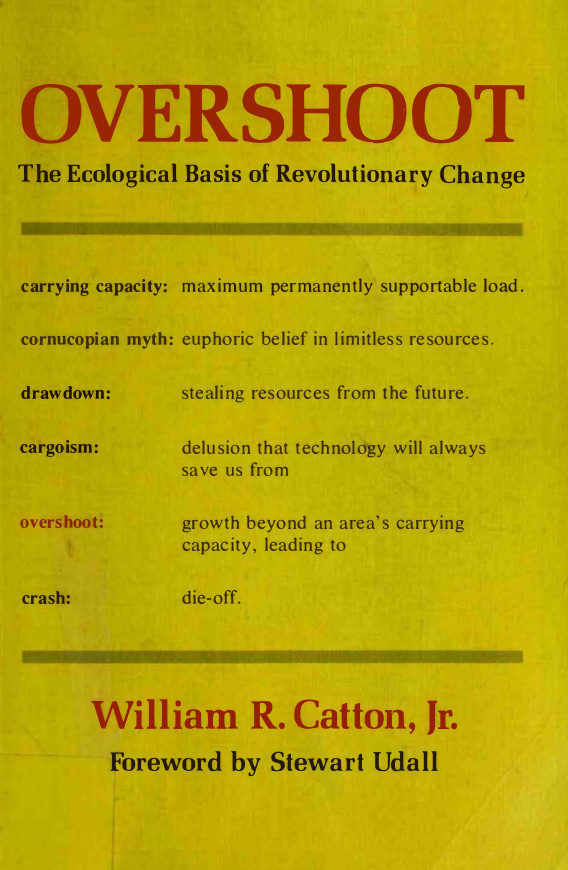L’Internationale, Sarah Werkmeister (eds.): Ecologising Museums (2016)
Filed under book | Tags: · climate, climate crisis, ecology, museum

“The implications around climate change have far-reaching consequences but they can also have far-reaching benefits. The e-publication Ecologising Museums explores how museums and cultural institutions can face the issue not only head-on, but from all angles. To what degree are the core activities of collecting, preserving and presenting in fact attitudes that embody an unsustainable view of the world and the relationship between man and nature?”
Publisher L’Internationale Online, 2016
Creative Commons BY-NC-SA License
126 pages
William R. Catton, Jr.: Overshoot: The Ecological Basis of Revolutionary Change (1980)
Filed under book | Tags: · biology, earth, ecology, environment, human ecology, sociology

This famous book outlines William R. Catton’s realization of “the urgent need for everyone, including sociologists, to recognize that our lifestyles, mores, institutions, patterns of interaction, values, and expectations are shaped by a cultural heritage that was formed in a time when carrying capacity exceeded the human load. A cultural heritage can outlast the conditions that produced it. That carrying capacity surplus is gone now, eroded both by population increase and immense techno-logical enlargement of per capita resource appetites and environmental impacts. Human life is now being lived in an era of deepening carrying capacity deficit. All of the familiar aspects of human societal life are under compelling pressure to change in this new era when the load increasingly exceeds the carrying capacities of many local regions—and of a finite planet. Social disorganization, friction, demoralization, and conflict will escalate.” (Catton, 2008)
Publisher University of Illinois Press, 1980
ISBN 0252009886
xvii+298 pages
PDF (16 MB, glossary missing)
Comment (0)Valerie Olson, Lisa Messeri: Beyond the Anthropocene: Un-Earthing an Epoch (2015)
Filed under paper | Tags: · anthropocene, earth, earth system, ecology, environment, extraterrestrial, geography, space
“As “the Anthropocene” emerges as a geological term and environmental analytic, this paper examines its emerging rhetorical topology. We show that Anthropocene narratives evince a macroscale division between an “inner” and “outer” environment. Th is division situates an Anthropocenic environment that matters in the surface zone between Earth’s subsurface and the extraterrestrial “outer spaces” that we address here. We review literature in the sciences and social sciences to show how contemporary environmental thinking has been informed by understandings of Earth’s broader planet-scaled environmental relations. Yet, today’s Anthropocene conversation draws analytic attention inward and downward. Bringing in literature from scholars who examine the role of the extraterrestrial and outer environmental perspectives in terrestrial worlds, we suggest that Anthropocenic theorizations can productively incorporate inclusive ways of thinking about environments that matter. We argue for keeping “Anthropocene” connected to its spatial absences and physical others, including those that are non-anthropos in the extreme.” (Abstract)
Published in Environment and Society, 6, 2015, pp 28-47
20 pages

